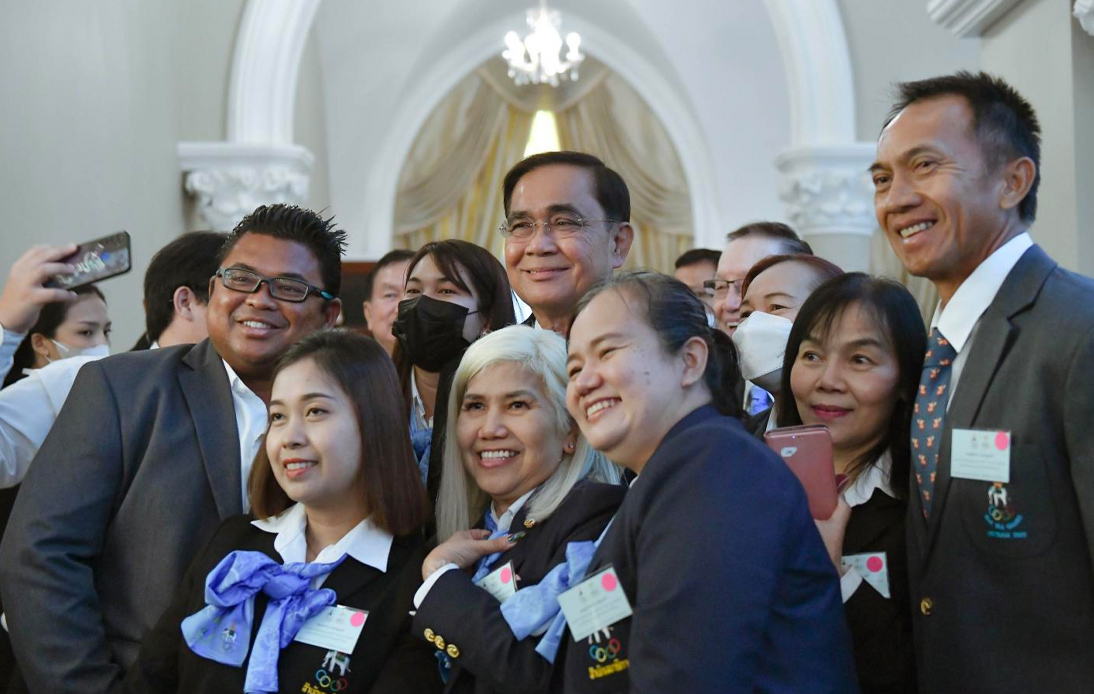
Prime Minister Prayut Chan-o-cha has advised the Thai team for the 2023 SEA Games in Cambodia to avoid political involvement.
On Wednesday, Gen Prayut greeted the nation’s athletes and officials at Government House before they compete in the SEA Games taking place from May 5-17.
“Don’t mix sports with politics,” Prayut said to journalists following the event.
“We are in the run-up to a general election [on May 14]. We should not criticise their [Cambodia’s] matters. It’s their matters. We have our own matters. They are different matters and don’t mix them.”
He added “If you do that, it will become chaotic. Do you understand? We have a lot of our own problems, so don’t mess with their problems.”
Some Thai officials and supporters remain displeased by Cambodia’s choice to incorporate Kun Khmer as a sport in the 32nd SEA Games and eliminate Muay Thai.
Although Cambodian authorities maintain that Kun Khmer originated from their Khmer heritage, Thai officials argue it is actually Muay Thai, and they won’t send competitors to participate in the event at the Games.
“I have told our people [officials and athletes] to go there [Cambodia] to create good relations, love and unity,” Prayut continued.
“We must be patient. There are already a lot of problems and we should not create more. We should stay peaceful. We all are neighbours.”
He also rebuked those who target Cambodia on social media platforms.
Previously, Prayut informed the Thai team that they should take pride in representing their nation.
“You are also our ‘ambassadors’ to show our culture to foreign people,” he said. “You should bear in mind that sports competitions are also about creating good relations and friendships.”
The 32nd SEA Games features 37 sports with 608 gold medals up for grabs, and Thailand hopes to secure around 112.
Thailand’s leading contenders include Olympic taekwondo champion Panipak Wongpattanakit and track and field athletes Puripol Boonson and Joshua Atkinson.
This will be the first SEA Games hosted by Cambodia since the event’s inception as the Southeast Asian Peninsular (SEAP) Games in 1959.




















